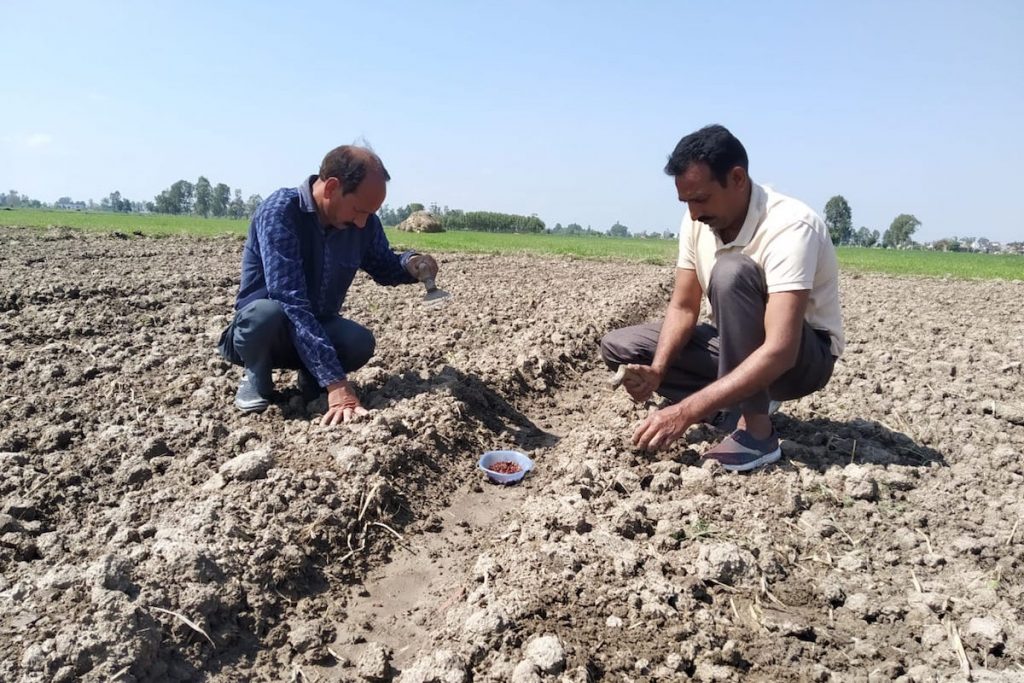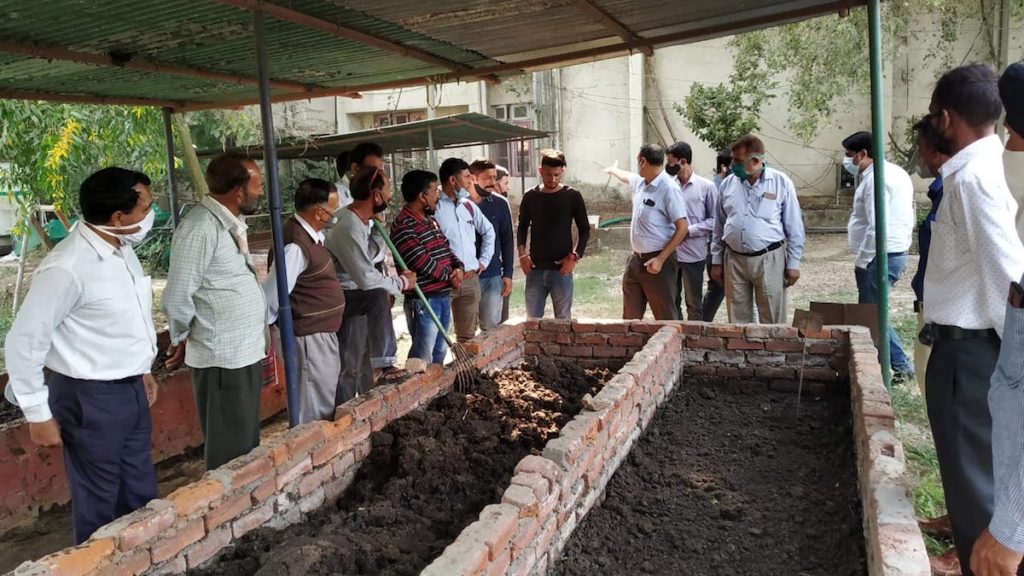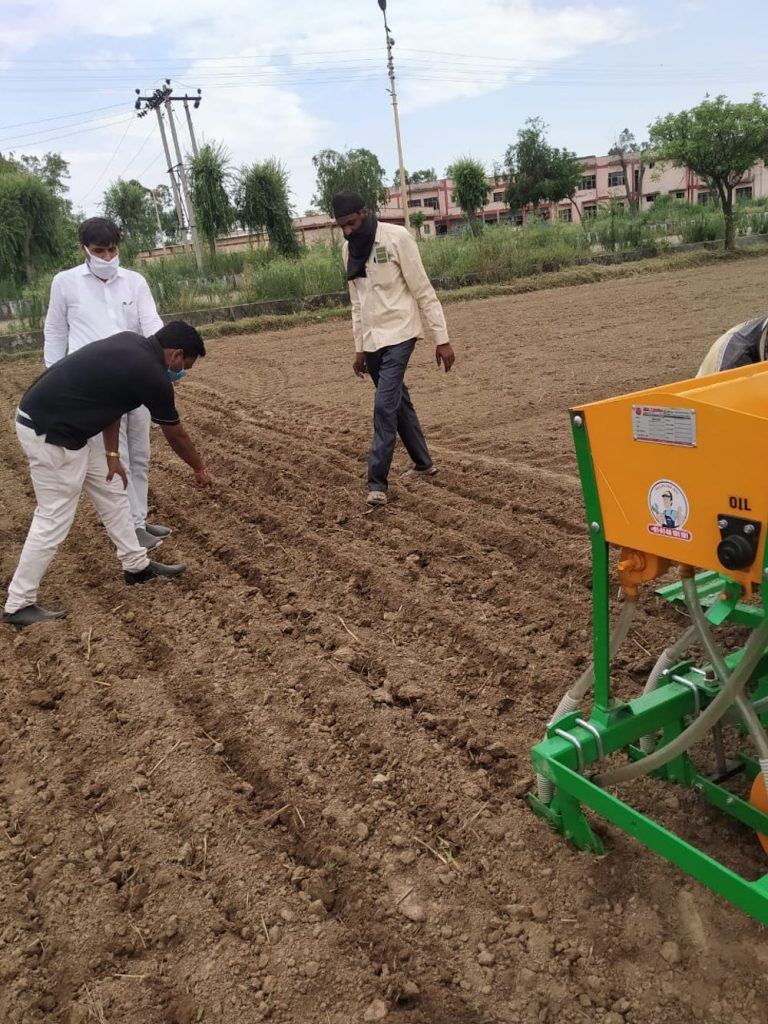
For several years 63-year-old Manga Ram got little from his four acres of farmland near Bisnah village situated in India’s northern region of Jammu and Kashmir.
No matter how hard Ram would labor, the yields from his rice crop were low.
“You work so hard to get some money in hand from the sowed crops, but you end up with nothing,” Ram told LiCAS.news.
There was a time when he was able to cultivate and harvest a rice crop to make money for his family but with his yields dropping he had to contemplate other options.
“I was seriously considering going to town and working as a day wage laborer. At least at the end of the day I’d earn something,” he said.
Ram wasn’t the only one in his area under distress; most farmers were experiencing a similar ordeal.
Nearby farmer, Suresh Singh, sold half of his seven acres of land to fund his daughter’s marriage.

“For three years we made nothing from our land; where would I have got the money to marry my daughter? Singh said. “The only asset a farmer possesses is his body and his land, so I sold the later,” he said.
Singh nearly sold off all of his land, but his relatives advised him to hold onto half of his land so that the family wouldn’t go hungry. “But believe me, I had lost all hopes from the land,” he said.
Chemical fertilizers and pesticides
Research scholars from the University of Agriculture, Jammu, collected soil samples from the region to understand why the land had become unproductive.
They found the overuse of chemical fertilizers and pesticides had sucked the life out of the soil.
“It’s the greed of larger yields that sometimes lures a farmer to use high intensity chemical fertilizers,” said Zahid Ahmad, a research scholar who was part of a team that took samples from around Bisnah village.
“These substances may provide high yields for a year or so but in the end it’s the farmer himself who has to bear the brunt of this mistake,” Ahmad said.
The effects of the chemicals end up leaving the land unfit for cultivation, he added.
To help Bisnah village’s farmers, the Jammu and Kashmir Catholic Social Service Society have been helping form self-help groups for the debt-ridden farmers since 2016.
“We collaborated with the experts from agriculture university to find out the remedy of the situation,” said Madhulika Sharma, a program coordinator from the society helping with the groups.
Sharma said researchers suggested farmers be trained in organic farming in a bid to restore land productivity.
“The training sessions were held in those villages with reported low productivity. We made the farmers aware about the dos and don’ts of organic farming,” Sharma said.
“Then seeds were provided free of cost and we helped construct vermi-compost pits for farmers and trained them to make natural fertilizers,” she said.
Ram, who attended a training session, was skeptical at first but in the hope of regaining profitable yields he decided to follow the organic techniques that were taught.
“The first year was not so profitable but this year the produce is much, much higher than what I had expected,” Ram said. “The quality of the crops was also remarkable. This is for the first time I’ll make a profit in five years,” he said.

Singh also has switched to organic farming to grow maize crops with the Church’s help.
“The yield has gradually been growing and I have heard that the demand for the organic products is also higher in the market,” Singh said.
“I believe the day is not far when my land would give me enough food to eat and enough money to spend on my family,” he said.
Singh said the church agency monitors the progress of the farming methods in the village and invites them to attend occasional meetings with agricultural experts.
“During the meetings we discuss various issues related to fertility of soil, organic manure, subsidies available for the farmers on seed and fertilizers and other issues related to agriculture,” Singh said.
According to Sharma, farmers in the region have also come to realize they can only sustain themselves if they diversify their crop system and this had become a major reason for their switching to organic farming.
“The focus here is on bringing more diversification in farming, thus enabling farmers to sow economically viable crops like vegetables during the ‘rabi’ (winter) season, and increasing productivity and survival percentage of traditional crops,” Sharma said. “Organic farming is making this possible for them.”
Fourteen villages of India’s Jammu region are now applying the organic farming methods promoted by the church society, Sharma added.
Source: Licas Philippines
0 Comments